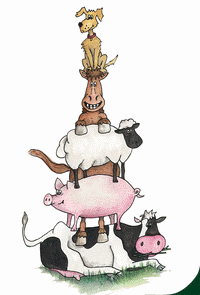Bird flu prevention zones in place following latest outbreaks across UK
Following new outbreaks of Bird Flue, a prevention zone has been declared in parts of North Yorkshire in England, affecting the districts of Harrogate, Hambleton and Richmondshire. This means that it is a legal requirement for all bird keepers in that area to keep their birds indoors and to follow strict biosecurity measures.
This comes as cases of bird flu have also been confirmed at locations in Essex, Chester, Cumbria and Norfolk. Further testing is underway to confirm the pathogenicity of the strain for these cases. 3km and 10km Temporary Control Zones have been put in place around each of these premises.
On 3 November 2021, an Avian Influenza Prevention Zone (AIPZ) came into force across Great Britain. The AIPZ means all bird keepers in Great Britain (whether they have pet birds, commercial flocks or just a few birds in a backyard flock) are required by law to take a range of biosecurity precautions.
You must:
- keep free-ranging birds in fenced areas to minimise contact with wild birds, neighbouring poultry or captive birds
- inspect outdoor areas, removing wild bird contaminants like faeces, feathers and wild bird carcases
- fence off or put netting over areas of standing water or ponds
- provide feed and water undercover, so wild birds can’t access it
- make your premises unattractive to wild birds. Use bird scarers, foils or streamers
- keep ducks and geese separate from other poultry
- store bedding under cover to reduce the risk of contamination
- clean and disinfect footwear before and after tending to your birds. If you own more than 50 birds, place foot dips containing government approved disinfectant at all entry and exit points
- clean and disinfect hard surfaces regularly
- clean and disinfect equipment and vehicles to avoid disease spread between premises
- minimise the movement of people, vehicles and equipment to and from bird areas and keep records of movements
- keep records of poultry, captive bird and egg movements
- maintain buildings that house birds to prevent water ingress
- ensure pest control is effective

